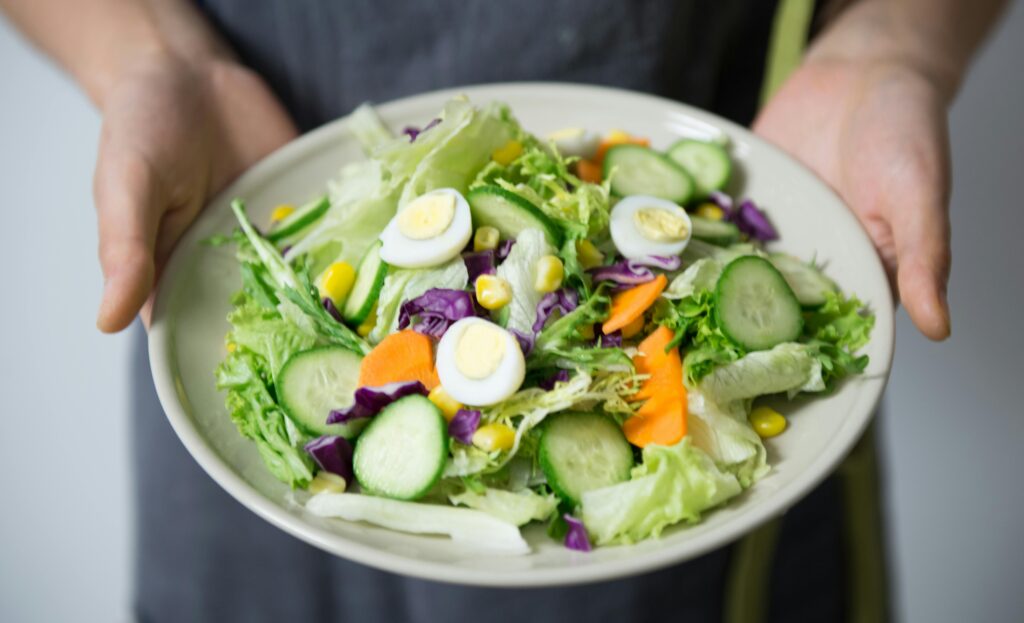Practical Steps You Can Start Today to Improve the Gut-Brain Connection
Introduction
The gut-brain connection might sound complex, involving microbiota, neurotransmitters, and hormones. But here’s the good news: you don’t need to be a scientist to benefit from it. The way you eat, sleep, move, and manage stress directly influences how your gut and brain communicate.

This article breaks down practical, science-backed steps you can start applying today. These are simple, actionable lifestyle adjustments that, when practiced consistently, can significantly improve your digestion, mood, and overall well-being.
- Begin Your Morning With Hydration: Your gut and brain both need water first thing in the morning. Why it’s important: While you sleep, your body naturally loses fluids through sweat and breathing. This fluid loss can slow digestion and leave you feeling mentally sluggish. Action step: Rehydrate by drinking a glass of warm or room-temperature water first thing in the morning. Add a slice of lemon for vitamin C and gut-friendly stimulation.
2. Eat Fiber-Rich Foods at Every Meal: Fiber is food for your gut microbes.

- Why it matters: Fiber feeds good bacteria, which produce short-chain fatty acids (SCFAs) that support brain health and reduce inflammation.
- Examples: Oats, beans, chia seeds, apples, leafy greens.
- Action step: Fill at least half your plate with vegetables or fiber-rich foods.
3. Add Fermented Foods to Your Diet: Fermented foods naturally provide probiotics that improve microbiome diversity.
- Why it matters: Probiotics influence serotonin production and lower anxiety levels.
- Examples: Yogurt, kefir, kimchi, sauerkraut, kombucha.
- Action step: Choose a fermented food in place of one snack each day. 4. Limit Processed Foods and Sugar: Excess sugar and processed foods feed harmful bacteria.
- Why it matters: Harmful bacteria release toxins that can disrupt mood and mental clarity.
- Action step: Swap soda for sparkling water, chips for nuts, and sweets for fruits. 5. Practice Mindful Eating: The state you eat in affects digestion.
- Why it matters: Eating under stress reduces stomach acid and slows digestion, leading to bloating and nutrient loss.
- Action step: Sit down, chew thoroughly, and avoid screens while eating. Take 20 minutes to finish a meal.
6. Manage Stress Daily: Stress is one of the biggest disruptors of the gut-brain axis.
- Why it matters: Stress hormones increase gut permeability (“leaky gut”) and trigger inflammation.
- Action step:
Try 5 minutes of deep breathing after lunch.
Journal your thoughts before bed.
Pray, meditate, or practice gratitude daily.
ALSO READ: HARVARD HEALTH ON GUT HEALTH
7. Prioritize Sleep Quality: Good sleep equals a happy gut and sharp brain.
- Why it matters: Poor sleep reduces microbial diversity and increases cravings for unhealthy foods.
- Action step:
Stick to a consistent sleep schedule.
Keep your room cool and dark.
Avoid heavy meals right before bed.
8. Move Your Body Every Day
You don’t need a gym membership to support your gut-brain axis.
- Why it matters: Physical activity promotes beneficial gut bacteria and boosts serotonin levels.
- Action step:
Take a 20–30 minute brisk walk after meals.
Add stretching or yoga to calm the vagus nerve.
9. Use stairs instead of elevators.

- Strengthen Your Social Life: Connections with others directly influence your mood and gut health.
- Why it matters: Isolation increases cortisol and weakens gut microbiota.
- Action step:
Call a friend.
Join a local group or class.
Eat meals with family whenever possible.
10. Spend Time in Nature: Nature nurtures both mental health and gut diversity.

- Why it matters: Exposure to natural environments introduces beneficial microbes and reduces stress.
- Action step:
Spend at least 20 minutes outdoors daily.
Walk barefoot on grass or sand.
Try gardening as a hobby.
11. Keep a Gut-Brain Journal: Tracking habits helps you understand what works for your body.
- Why it matters: Different people react differently to foods and routines. Journaling helps identify patterns.
- Action tip: Track your diet, sleep, and emotions in a daily journal. Look for links between habits and mood.
12. Support Your Gut During Stressful Times: Travel, exams, or busy work periods can stress your gut.
- Action step:
Take probiotic supplements during stressful weeks.
Keep healthy snacks on hand.
Drink extra water when flying or working late.
13. Train Your Vagus Nerve: The vagus nerve is the communication highway between gut and brain.
- Why it matters: Stimulating it improves mood, digestion, and reduces anxiety.
- Action step:
Practice humming or singing.
Splash cold water on your face.
Try deep belly breathing daily.
14. Make Small, Consistent Changes: Big overhauls often fail. Tiny changes build sustainable habits.
- Action step: Replace one processed snack with fruit today.
Add one fermented food tomorrow.
Start journaling by the weekend.
Within weeks, these micro-habits compound into real transformation.
NEXT: Brunel University Scholarships
Frequently asked questions FAQ
This article answers the following questions
- What is the gut-brain connection?
- What foods improve gut health?
- Can stress affect gut health?
- How can I naturally improve my gut microbiome?
Conclusion
Improving the gut-brain connection doesn’t require complex science experiments. It starts with small, consistent daily actions: hydrate, eat fiber, manage stress, sleep well, move more, and build social connections.
The key is not perfection but consistency. Every small choice you make in favor of your gut is also a gift to your brain, leading to better digestion, sharper focus, and a happier life.
Takeaway: You can begin today, right now, with the next sip of water, the next deep breath, or the next mindful bite.

Today, with the fast way of life that everyone is having, credit cards have a big demand throughout the market. Persons from every arena are using the credit card and people who are not using the credit cards have made arrangements to apply for 1. Thanks for expressing your ideas about credit cards.